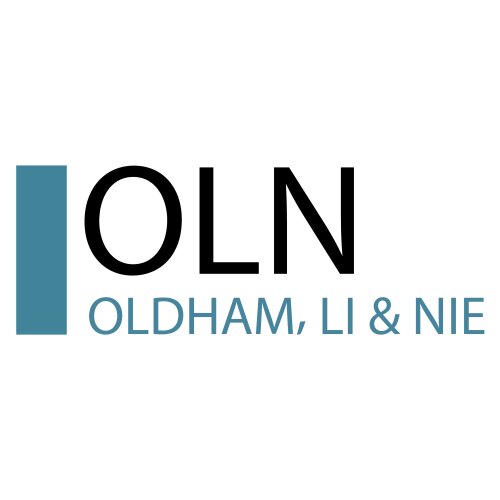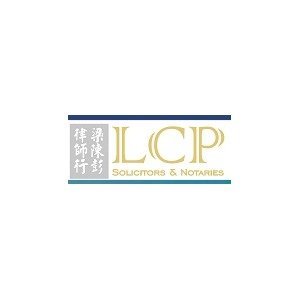Best Government Relations & Lobbying Lawyers in Central
Share your needs with us, get contacted by law firms.
Free. Takes 2 min.
List of the best lawyers in Central, Hong Kong
About Government Relations & Lobbying Law in Central, Hong Kong
Government relations and lobbying in Central, Hong Kong, involve engaging with government officials and influencing legislative or regulatory processes. This field is crucial for businesses, non-profits, and other entities seeking to navigate the governmental landscape for various purposes such as policy advocacy, regulatory compliance, and securing government contracts. Hong Kong’s legal framework offers distinct opportunities and challenges due to its unique position as a Special Administrative Region of China, with its own legal system under the "One Country, Two Systems" principle.
Why You May Need a Lawyer
Engaging in government relations and lobbying can be complex and involves understanding specific regulatory requirements, disclosure rules, and ethical guidelines. You may need a lawyer in several situations, including:
- Navigating complex government regulations and compliance issues.
- Engaging in lobbying activities that require transparency and adherence to legal standards.
- Assistance with government tenders and contracts to ensure compliance with local laws.
- Managing disputes or investigations related to lobbying practices.
- Strategic advice on approaching government bodies and officials effectively.
Local Laws Overview
The legal environment in Hong Kong is shaped by both local ordinances and its relationship with the broader Chinese government. Here are key aspects relevant to government relations and lobbying:
- Lobbying Regulations: While Hong Kong does not have extensive legislation specifically governing lobbying, activities must adhere to anti-corruption laws, particularly those enforced by the Independent Commission Against Corruption (ICAC).
- Disclosure Requirements: Public officials must declare interests, and organizations may be subject to disclosure requirements to avoid conflicts of interest.
- Anti-Corruption Laws: The Prevention of Bribery Ordinance in Hong Kong strictly regulates the conduct of both public and private sector entities to prevent corruption.
- Engagement Protocols: Understanding proper protocols for engaging with government officials is crucial, particularly due to Hong Kong’s emphasis on transparency and accountability.
Frequently Asked Questions
What is lobbying in the context of Hong Kong?
Lobbying in Hong Kong involves advocacy attempts to influence government policy, usually conducted by businesses, NGOs, or individuals, aiming for legislative or economic benefits.
Is lobbying legal in Hong Kong?
Yes, lobbying is legal; however, it must be conducted in compliance with anti-corruption laws and ethical guidelines set forth by the HK government and ICAC.
What are the main ethical considerations in lobbying?
Ethical considerations include transparency, avoiding conflicts of interest, adhering to anti-bribery laws, and ensuring truthful communications with government officials.
Who regulates lobbying activities in Hong Kong?
There is no specific lobbying regulator, but the Independent Commission Against Corruption is responsible for enforcing anti-corruption laws that apply to lobbying activities.
Are there penalties for non-compliance with lobbying laws?
Penalties for non-compliance, especially related to anti-corruption, can include fines and imprisonment according to the Prevention of Bribery Ordinance.
Do I need to register as a lobbyist in Hong Kong?
Currently, Hong Kong does not require lobbyists to register their activities, but transparency and adherence to anti-corruption laws are paramount.
What types of organizations typically engage in lobbying?
Businesses, trade associations, NGOs, and sometimes professional lobbyists engage in lobbying to influence policies or secure government contracts.
Can foreign entities engage in lobbying in Hong Kong?
Yes, foreign entities can engage in lobbying, but they must comply with the same legal and ethical standards as local entities.
What role do lawyers play in government relations and lobbying?
Lawyers provide strategic advice, ensure compliance with legal requirements, represent clients in disputes, and assist in formulating effective lobbying strategies.
How do I choose the right lawyer for government relations & lobbying?
Choose a lawyer with expertise in government regulations, knowledge of local political landscapes, and a strong track record in successfully handling lobbying cases.
Additional Resources
For further assistance, consider reaching out to the following resources:
- Independent Commission Against Corruption (ICAC): The official body responsible for addressing corruption in both the public and private sectors in Hong Kong.
- The Law Society of Hong Kong: Provides resources and a directory to help you find qualified lawyers specializing in government relations and lobbying.
- Hong Kong Bar Association: Offers legal resources and connections to qualified barristers in Hong Kong.
- Trade Associations: Industry-specific associations often provide guidance and resources for navigating local regulatory landscapes.
- Chambers of Commerce: Offer resources and networking opportunities for businesses engaging with government entities.
Next Steps
If you need legal assistance in government relations and lobbying in Central, Hong Kong, consider taking the following steps:
- Identify Your Needs: Clearly define the specific legal issues or goals you need to address.
- Research Lawyers: Use directories from the Law Society or Bar Association to find experts in government relations and lobbying.
- Schedule Consultations: Meet with potential legal advisors to discuss your case, evaluate their expertise, and determine the best fit for your needs.
- Draft a Strategy: Work with your lawyer to develop a strategic plan that aligns with your goals and complies with all relevant laws.
- Implement and Monitor: Carry out your government relations activities under legal guidance and continuously monitor for compliance and effectiveness.
Lawzana helps you find the best lawyers and law firms in Central through a curated and pre-screened list of qualified legal professionals. Our platform offers rankings and detailed profiles of attorneys and law firms, allowing you to compare based on practice areas, including Government Relations & Lobbying, experience, and client feedback.
Each profile includes a description of the firm's areas of practice, client reviews, team members and partners, year of establishment, spoken languages, office locations, contact information, social media presence, and any published articles or resources. Most firms on our platform speak English and are experienced in both local and international legal matters.
Get a quote from top-rated law firms in Central, Hong Kong — quickly, securely, and without unnecessary hassle.
Disclaimer:
The information provided on this page is for general informational purposes only and does not constitute legal advice. While we strive to ensure the accuracy and relevance of the content, legal information may change over time, and interpretations of the law can vary. You should always consult with a qualified legal professional for advice specific to your situation.
We disclaim all liability for actions taken or not taken based on the content of this page. If you believe any information is incorrect or outdated, please contact us, and we will review and update it where appropriate.












